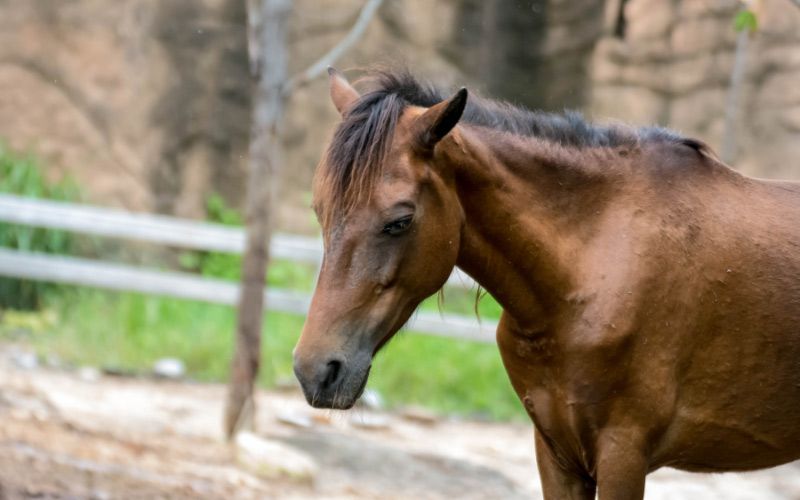
How to Protect Your Horse from Strangles
Horses frequently travel for different purposes, such as competitions, which can increase their chances of getting equine diseases like Strangles. Strangles is a severe illness for horses, with reported cases in the United States every year. Luckily, there have been no cases in Texas yet. Strangles is a highly contagious illness that once the disease is present it can live in the ground for years.
What is Strangles?
Strangles is a very contagious respiratory disease in horses caused by the bacteria Streptococcus equi. This condition is more common in younger horses and can have serious and deadly consequences. It can also lead to persistent infections in horses that show no symptoms.
Symptoms
Keep an eye out for these signs in your horse, as they may also indicate your horse has contracted this disease:
- Swelling or abscesses of the lymph nodes
- High fever
- Abnormal breathing
- Difficulty swallowing
- Nasal discharge
- Low or no appetite
When a horse contracts a severe strain, their lymph nodes can become excessively swollen and cause suffocation. Unfortunately, about ten percent of horses never fully recover from Strangles, leaving them as carriers of the disease. These horses may not always display symptoms, which can cause an outbreak in your barn or herd. The condition is easily and quickly transmitted through direct contact between animals or through sharing bridles, grooming tools, or even buckets by human hands.
How to Protect Your Horse from Strangles
If you want to ensure your horse’s wellness, it’s highly advisable to have your trusted veterinarian administer the Pinnacle I.N. vaccine. This vaccine was specifically formulated to ward off the contagious equine disease known as Strangles, which requires two doses. To maximize its effectiveness, having your horse vaccinated before the onset of Strangles is recommended. It is particularly essential that your horse receives the vaccine if it meets any of the following risk criteria:
- Your horse travels and is exposed to unfamiliar horses at shows in the boarding barn
- Your horse is traveling to a location where Strangles is a consistent issue (currently, Michigan has the most reported cases of Strangles for 2023)
- Your horse is exposed to high pasture stocking with two or more horses per acre
If you observe signs of this disease in your horse, it is crucial to separate the horse and promptly inform your veterinarian. To avoid spreading the infection, be sure to frequently wash your hands and change your clothes after coming into contact with the sick horse. When your vet arrives, they will collect a sample of the nasal discharge to determine what causes the symptoms and take the necessary steps to cure the horse. After your horse recovers, it is important to vaccinate them to prevent them from carrying the disease. If you have any further inquiries or require Strangles vaccination for your horse, please contact High Caliber Performance today.